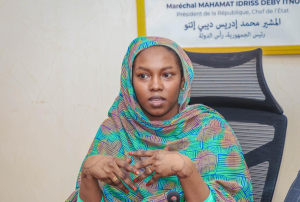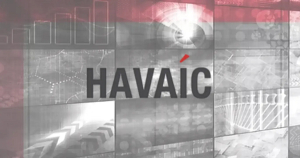La Rédaction
Eric Bemba Expands E-Commerce and Delivery Services in DR Congo
- Eric Bemba founded Wiikko, a Kinshasa-based shopping and delivery platform launched in 2019.
- The platform connects local merchants and restaurants with digitally connected consumers.
- Bemba also serves as Yango’s country director in DR Congo and co-founded fintech startup Splitti.
Eric Bemba is a Congolese entrepreneur active in technology and mobility. He founded Wiikko, a shopping and delivery platform that allows users to order products from restaurants and stores and receive them at an address of their choice in Kinshasa.
The company launched Wiikko in 2019 as a mobile application available on major online app stores. The platform targets a broad audience familiar with social media and evolving digital consumption trends. Users select their items, and the Wiikko team manages the process from preparation to delivery.
By simplifying ordering, tracking and delivery, Wiikko acts as an intermediary between merchants, restaurateurs and customers. The platform also enables consumers to discover new stores, products and promotional offers. For businesses, the platform provides additional visibility, order management tools and a logistics service that extends operations to customers’ homes.
Alongside this venture, Eric Bemba serves as country director of Yango in the Democratic Republic of Congo and as operations director for Francophone Africa. He also co-founded Splitti in 2020, a fintech company that enables users to create groups and collect funds to finance events.
Bemba graduated from the University of Alabama in 2009 with a bachelor’s degree in commerce and business administration. He began his career in 2010 at ConseilRH, a French recruitment consulting firm, where he served as international payroll manager.
He joined EY Paris in 2013 as a consultant in audit, advisory, tax and legal services. He returned to Kinshasa in 2016 and joined Compagnie Financière du Congo as a consultant. He then became head of development at SESOMO Services, a human resources services provider, in 2017.
This article was initially published in French by Melchior Koba
Adapted in English by Ange J.A de Berry Quenum
Plus Factor Grant : un nouveau programme pour financer les entrepreneurs africains
Plus Incubation Hub lance le Plus Factor Grant Program pour repérer et soutenir des entrepreneurs africains à fort potentiel, de l’idée à la phase de croissance. Le programme, d’une durée de huit semaines, offre des subventions non remboursables pouvant atteindre 1 million de nairas (environ 740,44 dollars), ainsi que du mentorat, des formations et un appui à l’accès au marché. Les candidatures sont ouvertes ici en ligne jusqu’au 15 mars 2026.
Lire aussi:
MarkHack 5.0 à Lagos : une conférence dédiée à la culture à l’ère de l’IA
PAL : Dady Emmanuel Ismael simplifie les paiements entre pays africains
En reliant les paiements africains entre eux, il redéfinit la manière dont les entreprises font circuler leurs fonds sur le continent et veut assurer une simplification des transactions.
Dady Emmanuel Ulrich Ismael (photo) est un serial entrepreneur bénino‑ghanéen dans la technologie. Il est cofondateur et directeur général de PAL, une start‑up basée en Côte d’Ivoire qui facilite les transferts d’argent et les paiements pour les entreprises et les travailleurs indépendants.
Fondée en 2021, PAL est une fintech destinée aux entreprises africaines, aux structures de transfert d’argent et aux acteurs du paiement qui souhaitent envoyer, recevoir ou convertir des fonds entre plusieurs pays du continent. La solution s’adresse également aux travailleurs indépendants et aux agents de mobile money ayant besoin de liquidités rapides pour leurs activités quotidiennes.
PAL met à la disposition de ses utilisateurs un compte et un portefeuille multidevises permettant de détenir plusieurs monnaies africaines au même endroit. À partir de ce portefeuille, il est possible d’envoyer de l’argent instantanément vers des portefeuilles mobiles, des comptes bancaires ou des portefeuilles marchands. Le compte PAL agit ainsi comme un point central pour recevoir, conserver, convertir et redistribuer des fonds, sans dépendre exclusivement des circuits bancaires traditionnels.
La plateforme propose par ailleurs un service de change en ligne, annoncé comme rapide et offrant des taux avantageux, afin de faciliter les échanges entre devises africaines. En cas de tension de trésorerie, PAL peut également fournir un apport de fonds immédiat, sans exiger de garantie, pour soutenir la continuité des activités.
En dehors de PAL, Dady Emmanuel Ulrich Ismael est aussi coprésident‑directeur général de Noworri, une solution fintech qui met en relation les acheteurs et vendeurs de cryptomonnaies. Il a cependant créé sa première entreprise en 2016, baptisée Bourseafrique, qu’il a dirigée jusqu’en 2019, visant à démocratiser l’investissement, y compris pour les personnes ne disposant pas de compte bancaire.
Diplômé de l’Université d’Abomey‑Calavi (Bénin), il y a obtenu en 2014 un bachelor en comptabilité et gestion d’entreprise. En 2016, il a effectué un stage à l’École du Patrimoine Africain (Bénin) en tant qu’assistant comptable.
Melchior Koba
Edité par Sèna D. B. de Sodji
Lire aussi:
Ghana : Sirius Skills propose des formations en ligne dans le numérique
Égypte : Flextock lève 12,6 millions $ pour son infrastructure de commerce en ligne
La start-up Flextock, fondée en Égypte, annonce une levée de 12,6 millions de dollars en série A pour renforcer son offre d’infrastructure pour le commerce en ligne. Présente en Égypte et en Arabie saoudite, elle propose une plateforme intégrée couvrant stockage et préparation de commandes, livraison, ventes, activités transfrontalières et financement des marchands. Les fonds serviront à étendre ses capacités et à recruter davantage de commerciaux.
Lire aussi:
Challenge App Afrique 2026 : les candidatures sont ouvertes pour les start-up
Les candidatures pour la dixième édition du Challenge App Afrique sur le thème « La tech au service d’un monde propre » sont lancées. Le concours s’adresse aux entrepreneurs africains francophones qui portent un projet numérique innovant et prometteur. Les candidatures sont ouvertes jusqu’au samedi 28 février 2026 sur le site du Challenge App Afrique.
Lire aussi:
Accélérateur pour start-up africaines dirigées par des femmes : 10 000 $ à gagner
Risevest obtient une nouvelle licence du régulateur boursier nigérian
La fintech nigériane Risevest, qui permet d’investir dans des actifs libellés en dollars, a obtenu une licence de gestion de fonds et de portefeuilles auprès de l’autorité des marchés financiers du Nigeria. Cette autorisation, délivrée via sa filiale RV Fund Management, fait suite à plusieurs mois d’examen et met fin aux doutes nés d’un avertissement public du régulateur en 2025 sur l’absence de licence adéquate.
Lire aussi:
HAVAÍC annonce la clôture de son fonds de 50 millions $ et investit dans 4 start-up
Breadfast lève 50 millions $ avant sa série C pour doper son expansion africaine
La plateforme égyptienne de commerce en ligne Breadfast obtient 50 millions de dollars de financement pré-série C auprès d’investisseurs régionaux et internationaux, dont Mubadala Investment et SBI Investment. Cette levée doit renforcer ses infrastructures logistiques et soutenir son entrée sur de nouveaux marchés africains, alors que l’entreprise, née comme service de livraison de pain, opère désormais dans l’alimentaire, la pharmacie et les services de paiement.
Lire aussi:
STARTS Prize 2026 : deux prix de 20 000 euros pour science, technologie et arts
Chad and Azerbaijan Open Talks on Smart Transport Systems
- Chad opened talks with Azerbaijan to digitalize transport services and infrastructure.
- Discussions covered e-documents, smart traffic management, and airport digital platforms.
- Authorities kept the partnership at the discussion stage while technical work continued.
The Chadian government explored a partnership with Azerbaijan to accelerate transport sector digitalization. The agenda dominated a meeting held on Monday, February 16, between Boukar Michel, Minister of Digital Economy, and Fatima Goukouni Weddeye, Minister of Transport, who received an official Azerbaijani delegation on mission in Chad.
The talks focused on several strategic priorities for the sector. The discussions covered the digitalization of transport documents and services, the deployment of intelligent road traffic monitoring and management systems using geolocation, and the modernization of airport platforms through integrated digital solutions. Both sides also examined advanced control, alert, and surveillance systems to strengthen security and improve operational performance.
According to Chadian authorities, “the Azerbaijani delegation presented proven technological solutions adapted to national realities and capable of effectively supporting the digital transformation of Chad’s transport sector.”
This rapprochement formed part of a broader framework to strengthen cooperation between Chad and Azerbaijan on digital transformation, which began in late January 2026 with the signing of two memorandums of understanding. Boukar Michel said the initiative aligned with the national digital transformation strategy, which aims to improve public service quality, increase transparency and administrative efficiency, strengthen the security of strategic infrastructure, and stimulate innovation and economic attractiveness.
In the transport sector, the supervising ministry had already announced, in September 2025, the launch of a large-scale project to digitalize its financially oriented administrative services. The project plans to deploy an integrated digital system that centralizes all services, including vehicle registration cards, driving licenses, transport licenses, accreditations, and the mandatory waybill.
Authorities said the proposed cooperation between Azerbaijan and Chad on transport digitalization remained at the discussion stage. However, officials said technical work would continue to identify priority projects, define a clear operational framework, and establish an implementation timeline.
This article was initially published in French by Isaac K. Kassouwi
Adapted in English by Ange J.A de Berry Quenum
STARTS Prize 2026 : deux prix de 20 000 euros pour science, technologie et arts
Les candidatures sont ouvertes pour le STARTS Prize 2026, un concours soutenu par la Commission européenne récompensant des projets mêlant science, technologie et arts. Deux grands prix de 20 000 euros seront attribués, et les lauréats présenteront leurs travaux au festival Ars Electronica 2026 à Linz, en Autriche. L’appel est mondial et la date limite de candidature est le 4 mars 2026.
Lire aussi:
Goin’ Digital : appel à candidatures pour les start-up du numérique au Sénégal
HAVAÍC annonce la clôture de son fonds de 50 millions $ et investit dans 4 start-up
Le fonds sud-africain HAVAÍC annonce un nouveau palier de clôture pour son troisième fonds, d’un objectif de 50 millions de dollars. Il indique avoir déjà réalisé quatre investissements, dont des tickets nouveaux et des réinvestissements, dans des jeunes entreprises technologiques nées en Afrique et visant une croissance internationale. La société prévoit d’aller jusqu’à quinze investissements, tout en renforçant l’accompagnement stratégique de son portefeuille.
Lire aussi:











